Burundi violence: Deadly protest explained as country on brink of second civil war
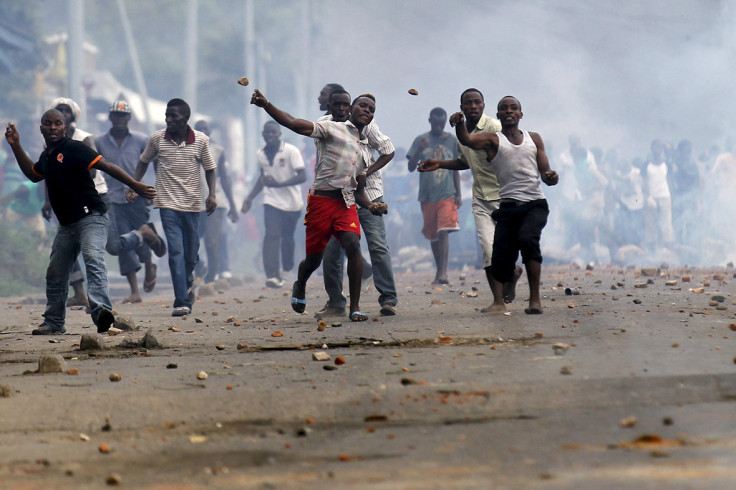
At least 20 people have been killed in violence that erupted in Burundi in late April after current President Pierre Nkurunziza announced he would seek a third term in June's election.
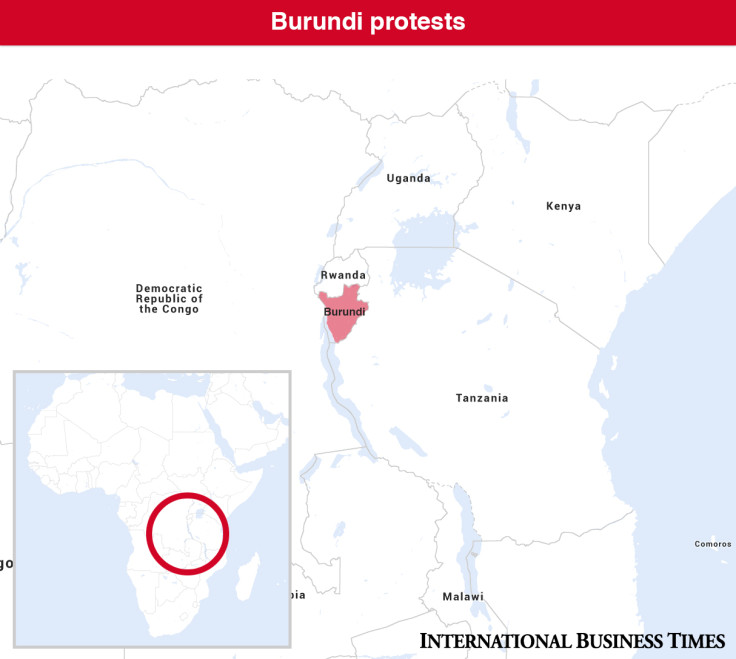
While riots against Nkurunziza's decision continue and thousands of Tutsi are fleeing the country amid fear of genocide, IBTimes UK looks at the main factors behind the violence in the central African nation.
Why are people protesting?
According to protesters, Nkurunziza is violating the Arusha Peace Agreement by seeking a third term as president. The document was signed in 2000 and intended to pave the way for democracy and end the civil war fought between ethnic Hutu and Tutsi, that has killed some 300,000 people since 1993.
According to the agreement, Burundi's president can only run for two terms. However, Nkurunziza's supporters argue that the president's first term should not be counted, as he was chosen by the Parliament and not by people as is indicated in the agreement.
Uganda-based independent journalist Fulvio Beltrami told IBTimes UK the protest "has been violently repressed by the police, the Imbonerakure – the youth wing of Nkurunziza's party National Council for the Defense of Democracy (CNDD-FDD) – and Rwandan terrorists from the Hutu rebel group Democratic Forces for the Liberation of Rwanda (FDLR)."
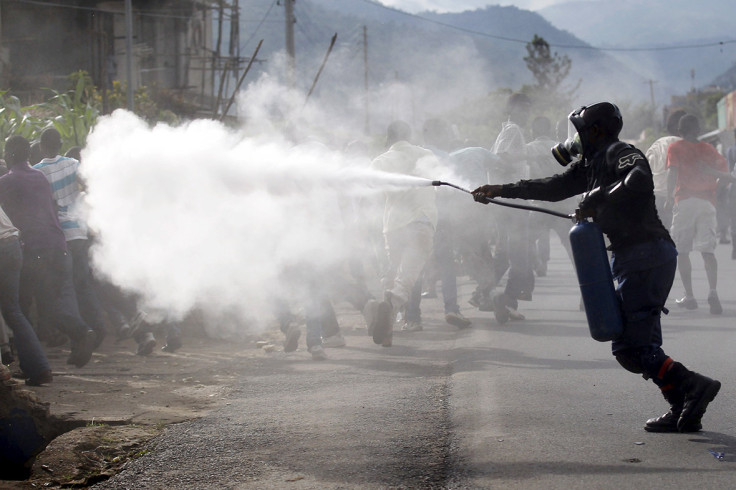
Why are people fleeing Burundi?
Following the protest, reports emerged that thousands of people – mainly Tutsi – fled Burundi and found shelter in neighbouring countries fearing that a genocide might occur against them. An estimated 20,000 Burundians are in Rwanda alone.
"The protest has been violently repressed by the police, the Imbonerakure – the youth wing of Nkurunziza's party National Council for the Defense of Democracy (CNDD-FDD) - and Rwandan terrorists from the Hutu rebel group Democratic Forces for the Liberation of Rwanda (FDLR)."
Beltrami explained that the CNDD-FDD has always supported an ideology that promoted Hutu supremacy. Following the assassination of the then president Melchior Ndadaye in 1993, the party allegedly tried to carry out a genocide against the Tutsi minority in the country.
In retaliation, the army, mainly composed of Tutsi, massacred thousands of Hutu and whoever was suspected of being a CNDD-FDD supporter. The murders triggered the country's civil war.
Speaking about the ongoing situation, Beltrami said: "Hundreds of Burundian Tutsi are crossing the Nyansa lake, on the border with Tanzania, and the Ruhwa and Ruzizi rivers, on the border with Rwanda and Ruzizi, fearing that a genocide against them could occur. They are sheltering in Tanzania, in southern Rwanda and the Congo."
According to another source, who spoke to IBTimes UK under condition of anonymity, Burundians are fleeing because "Nkurunkiza has let in the country the Hutu militiamen responsible for the 1994 Rwanda genocide and he uses them, together with the Inborenakures, to terrorise people in villages, where nobody sees what happens."
The source added that tensions between Hutu and Tutsi no longer exist and the problem today is political.
"People are tired of Nkurunkiza because he did not do anything good in terms of social and economic development. Nkurunkiza is Hutu and he is the one who is trying to spread ethnic hate in order to gain the approval by the Hutu population. However, many Hutu are against his third mandate and statistics say that only 20% of the population support him."
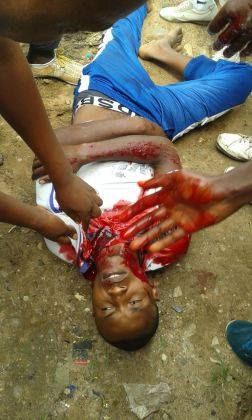
Nkurunziza's reaction to the protest
Nkurunziza confirmed he is seeking a third term even after some of the protesters were killed in escalating violence and demonstrators vowed to continue to rally until he agreed not to run for re-election.
A few days later, the country's constitutional court approved Nkurunziza's third-term bid. The decision was made one day after the constitutional court's vice-president fled the country. Judges also admitted they were put under pressure and received "death threats" to rule in favour of Nkurunziza's bid.
Fears of a second civil war spread
"We are heading towards hell because of unwise political decisions from CNDD-FDD. I'm very scared about it and the majority of Burundians are scared too."
In a separate report by IBTimes UK, the president of the United Kingdom Burundian Diaspora, Fred Ngamiye, said that the court's decision paved the way for another civil war.
He also added that the president's party is accused of trying to shift the spotlight on to ethnic rivalries by saying that the protesters are only from the Tutsi tribe.
"But that is not true. This is everyone. All ethnic groups are on the streets from 6 o'clock in the morning until 8 at night, Hutus and Tutsis together," Ngamiye said.
"What the ruling party is trying to do now is saying: 'You Hutus don't follow these Tutsis, they are not your brothers and don't want you to live in this country'. They are trying to fuel ethnic tension between brothers and sisters. It's divide and conquer, and the result will be absolutely devastating.
"We are heading towards hell because of unwise political decisions from CNDD-FDD. I'm very scared about it and the majority of Burundians are scared too."
Meanwhile, reports said that at least 500 Burundian students staged a protest in front of the US embassy in the country demanding protection after universities had been closed following a decision by the authorities.
The students claimed that the decision to close the universities was aimed at forcing them to go back to their hometowns and prevent them from taking part in demonstrations against Nkurunziza's third term bid.
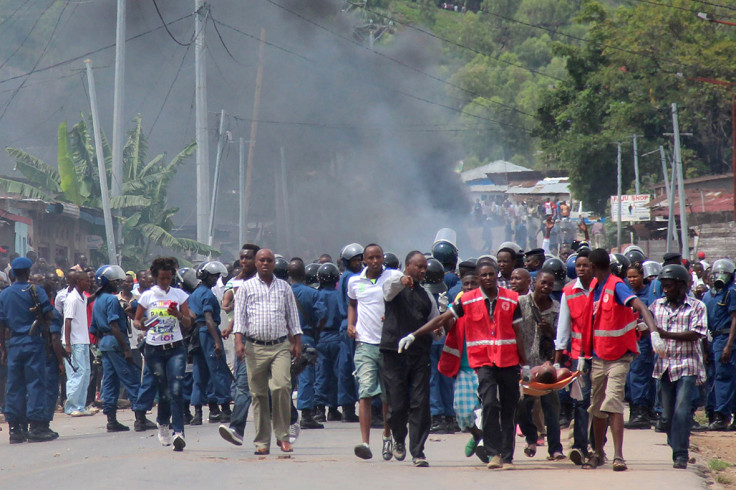
Brussels march
Hundreds of people joined a peaceful march in Brussels, Belgium, on 10 May to protest against Nkurunziza's decision and escalating violence in Burundi, where at least one man was burned alive after being accused of being part of the Imbonerakure.
"We are joined today by our Burundi friends from Germany and France with one common objective: Burundians have kept quiet for far too long but now that our fundamental rights have been violated and that we face the provocation from the party in power (CNDD-FDD), we are uniting," Bakunda Athanase, president of the Burundi Diaspora of Belgium (DBB), told IBTimes UK.
Meanwhile, Belgium temporarily suspended its financial support to the electoral process as well as police cooperation in Burundi.
A statement by the Minister for Development Cooperation, Alexander De Croo, said: "The Belgian development cooperation had planned a budget of €4m to support the elections in Burundi. A first tranche of €2m has already been paid. Deputy prime minister De Croo believes that in the current circumstances, the payment of the remaining €2m should be suspended."
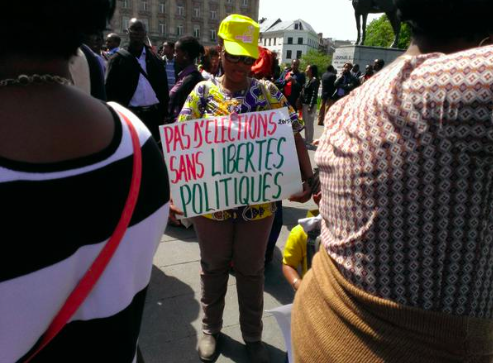
Army coup
As violence increased and reports of police firing on protesters emerged, an army general said senior officers were "dismissing" Nkurunziza.
The coup d'etat was announced on public radio, with senior army generals saying they were deposing Nkurunziza, who is travelling to Tanzania to meet East Africa Community leaders to discuss the recent violence that has rocked his country.
"Active forces of the nation have decided to take charge of the nation," Godefroy Niyombare, a former SNP chief fired in February, said in the radio announcement. "President Pierre Nkurunziza is removed from office."
© Copyright IBTimes 2025. All rights reserved.






















